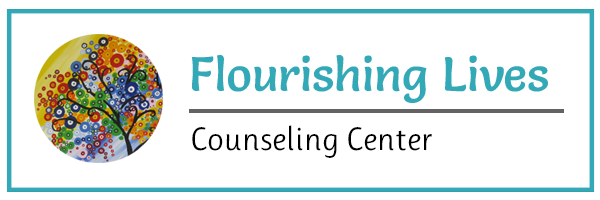What do all those letters mean after your name? Does it matter which ones you have?
Here is a list of common credentials in the mental health field:
- PsyD/Ph.D.: this indicates a doctoral degree in clinical psychology, a minimum of 4 years of study after college
- MA/MS: this indicates a master’s degree in a related field such as psychology or counseling, usually 2 years of study after college
- LCPC: Licensed Clinical Professional Counselor, indicates the person has completed 2000 hours of supervised clinical work and passed this state licensing exam
- LPC: Licensed Professional Counselor, indicates that the person has completed their master’s degree and passed this state licensing exam
- SEP: Somatic Experiencing Practitioner, this indicates completion of a 3-year program of training focused on understanding and healing the nervous system’s functioning
- CRC: Certified Rehabilitation Counselor, this indicates advanced training to serve people with disabilities and has passed the national certification exam
- PMHNP: Psychiatric Mental Health Nurse Practitioner, indicating either two or four years of education in nursing specifically dedicated to psychiatric mental health related diagnoses, issues, and treatments
Whether your therapist is a good fit for you may be partly related to their credentials, but is often equally or even more so related to how their clinical experience and personality fit with your needs. Often the degree to which a therapist has training on the particular issue you are facing is not necessarily reflected in licensure credentials. If you have any questions or concerns along these lines, please bring them up to discuss with your therapist. We know that the success of therapy rests on a good connection between the therapist and the client; we will not be offended by such questions. Instead, we will be happy to make adjustments to meet your needs or help you find another professional who can do so better. Sometimes clients will even purposely set up initial appointments with 2 or 3 different therapists to see who they connect with best, and we certainly support you doing that for yourself or your child.
What should I expect at the first appointment?
At the first appointment, our goals are to begin getting to know you, to hear about why you are seeking professional help at this time, to answer whatever questions you may have for us, and to develop a shared plan for moving forward. Therapy is a working relationship that builds over time and we will continue to deepen our understanding of your history, concerns, strengths, weaknesses, and goals at future appointments.
What are the expectations for the therapist and the client during counseling?
You can expect your therapist to listen well; to treat you with professionalism, kindness, and respect; to use their expertise to help you meet your goals for therapy, and to be generally on time (within a 10-minute window). We expect that you will bring up the issues that are important to you; speak as honestly as possible; follow though with “homework” outside of session if that applies; and also be on time as much as you can, both with appointments and payment.
What’s the difference between therapy and talking to a friend?
While both therapy and friendship and wonderful supports, there are several important differences. Friends are woven into the fabric of your life and may share a workplace or a neighborhood with you, but therapy is strictly set aside from your daily life and entirely confidential. This provides the opportunity to explore and deal with issues that might be overwhelming or upsetting to friends, or that you may feel too embarrassed to share with them, or that may create unwanted ripple effects through your life. Friendship is mutual, but your therapist will not have any expectations of you aside from participating in your therapy. Your therapy is all about you and you never need to be concerned about your therapist. Furthermore, therapy with a licensed mental health professional provides you the benefits of our years of study and expertise about social-emotional issues and relationships. We can easily spot patterns and help you understand the implications of your family dynamics, mental health diagnoses, coping strategies, and more. Friends care and want the best for you; licensed therapists also know how to help you change your life so that you are emotionally healthy and thriving.
What about medication?
Medication can be a helpful adjunct to therapy, potentially improving many problems such as difficulty sleeping, difficulty concentrating, ruminative thinking, unstable moods, and others. It’s important to remember that while you can research in general what possible benefits and side effects various classes of medications may have, that doesn’t tell you what your individual response would be to any given medicine. You can request a holistic psychiatric evaluation from our Nurse Practitioner here and she will discuss all the details of your individual situation with you in order to devise a medication plan most likely to be helpful to you. Then, she will check and adjust as needed to provide you with the best possible medication support. Our therapists are equipped not only to assess your issues but also help you understand what research says about the best treatment approaches available for them. That may include medication, particular types of therapy, other treatment modalities, and/or other levels of care. We will also coordinate with any providers outside of our office as long as you sign the necessary legal release of information form.
How do I know if therapy is working? How long will it take?
These are important questions that are difficult to answer in generalities. You and your therapist will develop a shared understanding of what your goals for therapy are, and what will be the steps you take to move towards those goals. Many factors play a role in determining the length of time it will take to accomplish your goals, including the unique circumstances and challenges you bring with you, as well as the new supports and resources we can offer. Counseling is most successful when consistent appointments are kept and recommendations are followed. Together, we will discuss a schedule and develop a treatment plan to best meet your needs.
Do you provide online / secure video conference / telehealth services?
Yes, we are equipped to provide services in this format. However, be aware that your insurance policy may or may not cover it. If this is a therapy format you are interested in, please discuss it with your therapist.
Who do I contact if I have a billing or insurance question?
Talk to your therapist about billing and insurance questions. We are tracking what happens with your account each session and if we don’t have immediate answers, we will get back to you shortly or help you to find the answer in another way.
What is the cancellation policy?
Your therapist will provide you with the details of their own cancellation policy. Generally, we allow one missed appointment each year, but after that charge a fee if you do not cancel 48 hours in advance. We offer email, text, and/or voicemail reminders to be automatically sent to you to help minimize missed appointments.

